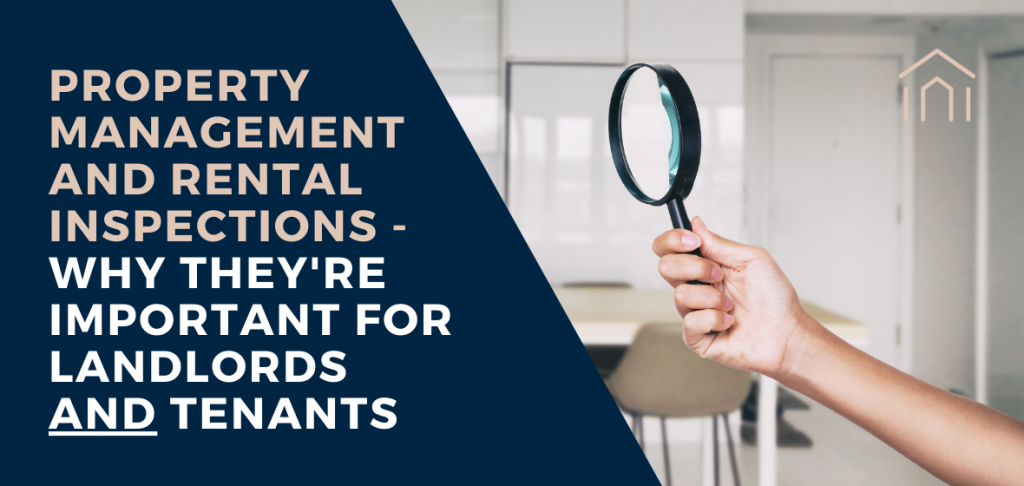
Penrith, Property Managers, and regular rental inspections…
How landlords and tenants can use routine property inspections to save money and reduce risk
Property Management is always a hot topic. And as the Penrith region becomes increasingly popular for homeowners, investors, and renters, it’s only becoming hotter.
Why? Competition.
Penrith is undergoing significant growth, and the opportunities presented by the Western Sydney Airport, the Western Sydney Aerotropolis, and the Metropolis of Three Cities will ensure this growth is sustained. As a result, landlords are competing for Penrith’s best investment properties. Renters are competing for Penrith’s best rental properties.
And both are competing for Penrith’s best Property Managers.
How the right Property Manager makes or breaks a rental
Without a doubt, Penrith’s very best Property Managers share one thing in common – they’re all proactive with regular rental inspections. Why? They recognise that routine inspections are vital for both landlords and renters. Landlords need to protect their investment, while renters need to ensure their personal wellbeing.
Landlords need to protect their investment,
while renters need to ensure their wellbeing.
With Penrith located in NSW, its legislated that properties can be routinely inspected up to four times per year. Seven days’ notice must be given to the tenant with a detailed report of every inspection, including photos of the space, retained for ongoing (and future) record-keeping.
What exactly does a Property Manager look for?
Property Managers will check for:
- Cleanliness, tidiness, and overall presentation
- Functioning smoke alarms, lights, and light switches
- Leaks in sinks, baths, showers, or taps
- The condition of the oven, stovetop, exhaust fan, and more
- Wear on flooring, such as scratched floorboards, stained carpet, and broken or cracked tiles
- Walls free of marks, holes, and mould
- Functioning and well-presented doors and windows (including locks and handles)
- A well-presented garage with functioning locks
- Well-maintained lawns, garden beds, bushes, and amenities (such as pools)
- The condition and functionality of gates and fencing
A proactive Property Manager will undertake an extensive inspection to ensure the property maintains its value and tenants remain safe, comfortable, and accountable. Irregular or unstructured property inspections can make or break a rental for everyone involved, and in more ways than one.

Four reasons why regular inspections are critical for rental properties
Regular inspections, undertaken with the right Property Manager, will ensure the happiness of both landlords and tenants. And here’s why.
1. Both tenants and landlords meet their obligations
Despite the myths, there are good tenants out there! A proactive Property Manager will not only find them but also dot the i’s, cross the t’s, and ensure they’re aware of their responsibilities as a long or short-term tenant.
At the same time, good Property Managers ensure routine inspections and a clear line of communication with landlords. The result? Positive collaboration and fast responsiveness to any issues, with all parties meeting the agreed-upon requirements of the tenancy.
- Benefits for landlords: Happy and responsible long-term tenants, providing economic stability and removing the stress of owning an investment property.
- Benefits for tenants: Personal security and peace of mind with a long-term tenancy.
2. Valid insurance and safety
Ticking the boxes is always important, with landlords and tenants both requiring various reports and certificates to validate home insurance policies. With regular, thorough inspections, your Property Manager can provide these as required.
But a genuinely proactive Property Manager? One with high standards and attention to detail? They do more than just tick the boxes.
Regular inspections enable Property Managers to identify potential issues or threats around structure, safety, and security. Often these issues don’t affect either the landlord or the tenant – they have the potential to cause harm (whether physical or financial) to both.
- Benefits for landlords: The risk of landlords inadvertently upholding their legislative requirements to provide safe and secure premises is mitigated.
- Benefits for tenants: The risk of injury or harm is mitigated by a wholly safe and secure home.
3. Regular, simple maintenance prevents irregular (and potentially major) disasters
With regular inspections identifying any required maintenance early, the potential for issues becoming significant and causing extensive damage is mitigated. This helps both landlords and tenants avoiding bigger, nastier outcomes down the track.
One thing that’s become quite apparent to us is that regular inspections also remove the responsibility from either party to learn about best practice. This is our job because tenants may not identify, recognise, or quicklycommunicate maintenance issues unless it’s a direct inconvenience to them.
But let’s think this through – noticing something as small as a leaking tap, for example, can prevent water wastage, excessive water bills or structural damage.
Regular property inspections ensure any required maintenance is addressed quickly, correctly, and cost-effectively.
- Benefits for landlords: A variety of financial savings – regular inspections can prevent bill shock, significant damage to the premises, or potentially unleased premises if unhappy tenants vacate.
- Benefits for tenants: A significant reduction in the risk ofpotential damage to personal goods resulting from large, unexpected disasters, the prevention of unnecessary waste, and the emotional and physical wellbeing that comes from living in a comfortable, well-functioning and safe home.
4. Ensuring value, safety, and comfort
Maintenance is critical to ensuring an investment/rental property remains in excellent condition.
For landlords, regular communication from a proactive Property Manager provides clarity and reassurance over the status of your property. It removes the worry of maintaining the value of one of your most significant assets. And a proactive Property Manager will not only have an extensive list of contacts but also negotiate on your behalf, ensuring you receive both value and quality from any required maintenance or repairs.
For tenants, regular inspections ensure your home remains comfortable and fully functional. Critically, it means a safe home – one that is free of mould, secure, and in perfect running order (think fire alarms, light switches and more).
- Benefits for landlords: A proactive Property Manager will work hard to ensure the financial value of your property is maintained over the long-term, making it more appealing to future tenants and easier to sell in the future.
- Benefits for tenants: A proactive Property Manager will ensure your home is maintained for comfort, functionality, and safety over the course of your tenancy.

So, just how proactive is your Property Manager with routine inspections?
Property management should be headache-free. Promise. And routine inspections really do make it headache-free for both landlords and tenants.
Four inspections a year with detailed reporting, clear communication, and proactive responsiveness to address small issues before they become major problems.
Not familiar? It should be.
And if it’s not, Educated Property’s personalised, down to earth, and legendary property management across the lower Blue Mountains and Penrith (think Glenmore Park, Emu Plains, Leonay, Cranebrook, Jordan Springs and more) is exactly what you need.
Seriously, we’re a friendly, driven bunch who thrive on communicative relationships and uber-fussy inspections. So if you’re after a Property Management team with seamless service, give us a call on 1300 338 228. We’re local people helping local people.

